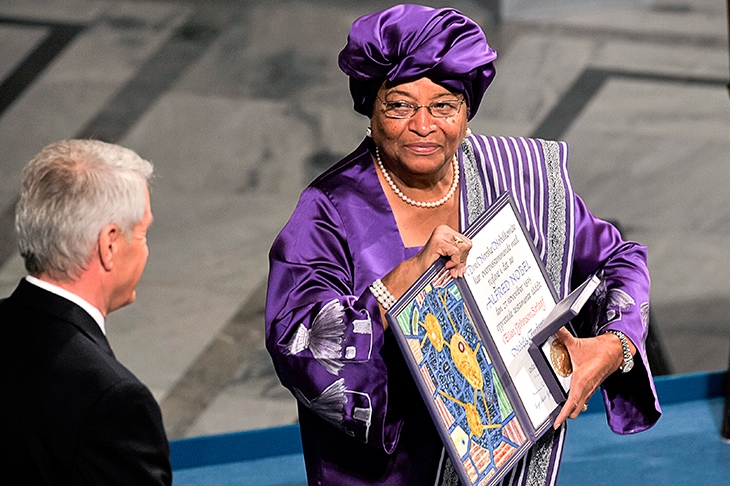Betraying the Nobel opens with a detonation from Michael Nobel, Alfred’s great-grandnephew. The vice-chairman and then chairman of the Nobel Family Society for 15 years, Michael believes that the Nobel Peace Institute has betrayed the ‘original conditions of Alfred Nobel’s will and intentions’. Its selection process is ‘very sketchy’ and its committee of Norwegian parliamentarians reflects the balance of power in their parliament. Its awards follow ‘personal interests’, ‘political and national considerations’ and ‘human rights or global warming’, all of which have ‘little or nothing’ to do with Alfred Nobel’s bequest.
The Prize was a dynamite idea when it was founded in 1900. What better way to avoid war than to recycle the profits from explosives into an incentive scheme for perpetual peace? But, as Unni Turrettini describes in her efficient and quietly devastating account, the Peace Prize soon fell to secret horse-trading, moral grandstanding and what one Norwegian parliamentarian calls ‘the privatisation of foreign policy’.
Alfred Nobel, the Swedish engineer who had stabilised nitroglycerine in 1863, began selling it to miners as ‘Safety Powder’ in 1867. Safety Powder created the St Gotthard tunnel through the Alps. It also killed Tsar Alexander II when assassins lobbed a dynamite-filled bomb at his carriage. Nobel died in San Remo in 1896, aged 63. Childless and unhappy — his mother had blocked a love match with Bertha Kinsky, an idealistic Russian countess — the ‘Dynamite King’ bequeathed annual prizes in physics, chemistry, medicine and literature, to be administrated by apolitical Swedish institutions; the Karolinska Institute, a medical university, awards the medicine prize. A fifth, in memory of Bertha’s values, was to be granted by the Norwegian parliament.
Bertha received the Peace Prize in 1905, but the committee didn’t do badly in its early decades.









Comments
Join the debate for just £1 a month
Be part of the conversation with other Spectator readers by getting your first three months for £3.
UNLOCK ACCESS Just £1 a monthAlready a subscriber? Log in